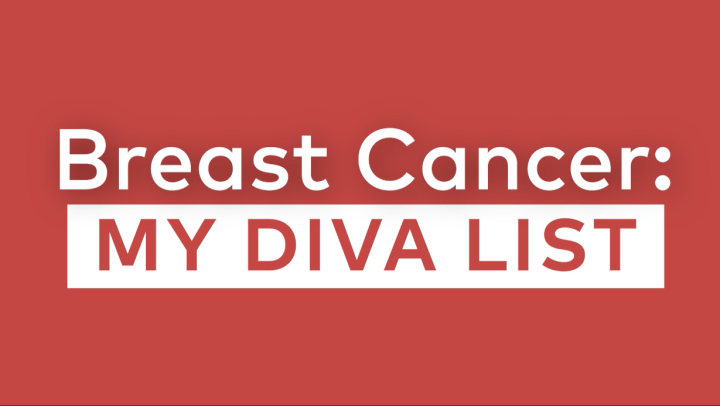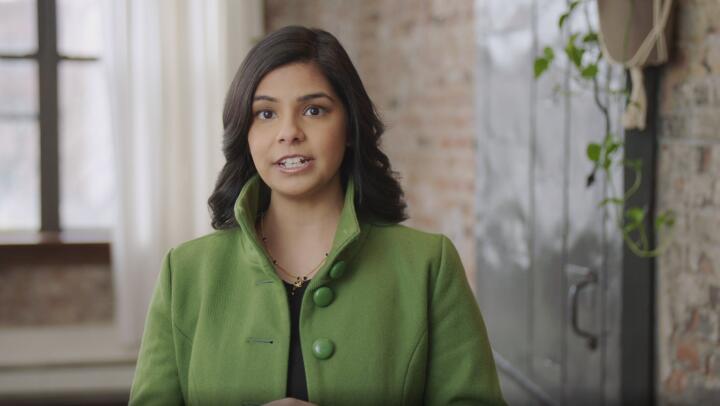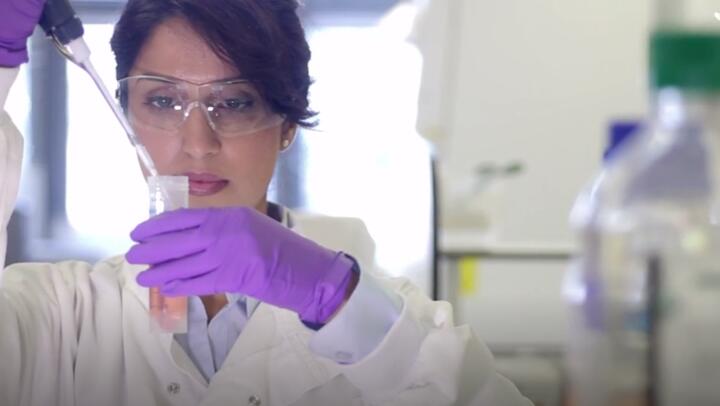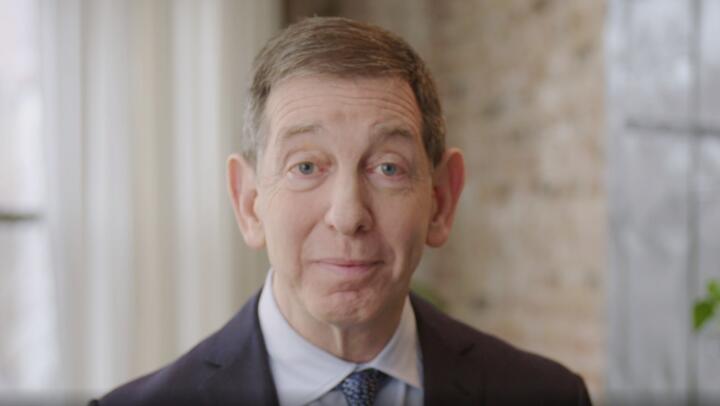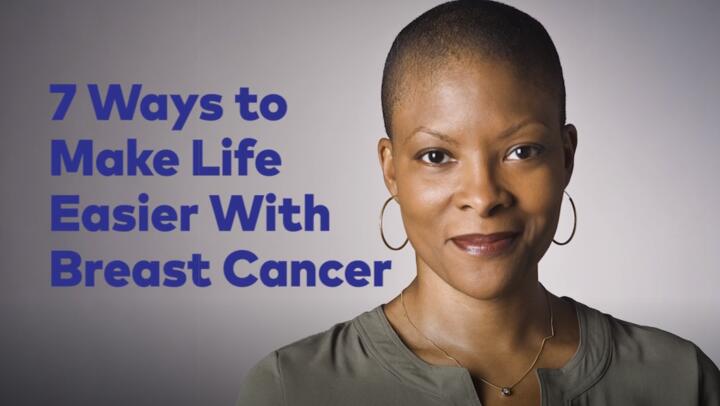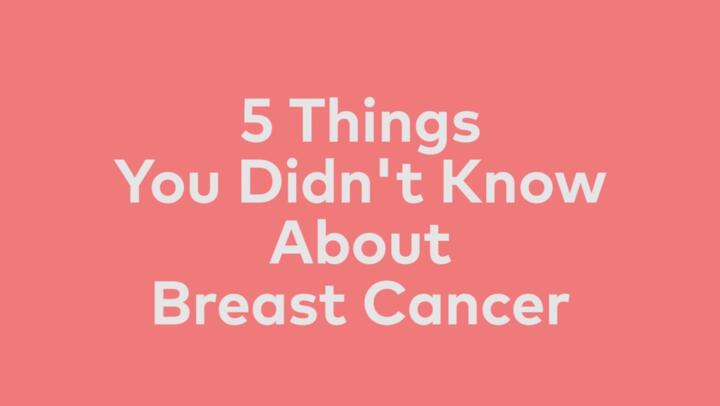8 Things to Know About Thyroid Cancer

Medically Reviewed By William C. Lloyd III, MD, FACS
Written By Sarah Lewis, PharmD on June 15, 2021
-
 1. Cases of thyroid cancer have increased in recent years.In fact, it’s the most rapidly increasing cancer diagnosis in the United States, according to the American Cancer Society (ACS). Experts at the ACS believe the increase is mostly due to more use of ultrasound than in the past. Ultrasound can find very small nodules and lead to early diagnosis. But there have also been increases in larger tumors that don’t require ultrasound for diagnosis.
1. Cases of thyroid cancer have increased in recent years.In fact, it’s the most rapidly increasing cancer diagnosis in the United States, according to the American Cancer Society (ACS). Experts at the ACS believe the increase is mostly due to more use of ultrasound than in the past. Ultrasound can find very small nodules and lead to early diagnosis. But there have also been increases in larger tumors that don’t require ultrasound for diagnosis. -
 2. Thyroid cancer affects more women than men.The ACS estimates more than 60,000 Americans will get thyroid cancer in 2015. And about 75% of those cases will be women. Thyroid cancer also tends to strike women at a younger age than men. The risk peaks for women in their 40s and 50s. For men, it’s in their 60s and 70s. This means most cases of thyroid cancer are in women younger than 55. It can occur, but is less common, in children and teens.
2. Thyroid cancer affects more women than men.The ACS estimates more than 60,000 Americans will get thyroid cancer in 2015. And about 75% of those cases will be women. Thyroid cancer also tends to strike women at a younger age than men. The risk peaks for women in their 40s and 50s. For men, it’s in their 60s and 70s. This means most cases of thyroid cancer are in women younger than 55. It can occur, but is less common, in children and teens.
-
-
 3. There are four different types of thyroid cancer.There are four different types of thyroid cancer—papillary, follicular, medullary and anaplastic. Papillary thyroid cancer accounts for most—about 86%—of cases in the United States. Follicular thyroid cancer makes up about 9% of cases. Medullary and anaplastic cancers account for the rest. Most thyroid cancers come from acquired gene mutations—meaning the mutations occurred at some point in your life and you didn’t inherit them from your parents. Although some forms of medullary thyroid cancer are inherited.
3. There are four different types of thyroid cancer.There are four different types of thyroid cancer—papillary, follicular, medullary and anaplastic. Papillary thyroid cancer accounts for most—about 86%—of cases in the United States. Follicular thyroid cancer makes up about 9% of cases. Medullary and anaplastic cancers account for the rest. Most thyroid cancers come from acquired gene mutations—meaning the mutations occurred at some point in your life and you didn’t inherit them from your parents. Although some forms of medullary thyroid cancer are inherited.
-
 4. Thyroid cancer doesn’t always cause symptoms.Unlike other thyroid disorders, thyroid cancer doesn’t necessarily cause symptoms. This can make it hard to detect. Often, doctors find a lump on a routine exam. Or people may go to the doctor because of a lump in the neck. Most of these lumps—or nodules—are benign (not cancer). But testing is necessary to find out for sure. Other symptoms of thyroid cancer include hoarseness, persistent cough, throat or neck pain, and difficulty swallowing or breathing.
4. Thyroid cancer doesn’t always cause symptoms.Unlike other thyroid disorders, thyroid cancer doesn’t necessarily cause symptoms. This can make it hard to detect. Often, doctors find a lump on a routine exam. Or people may go to the doctor because of a lump in the neck. Most of these lumps—or nodules—are benign (not cancer). But testing is necessary to find out for sure. Other symptoms of thyroid cancer include hoarseness, persistent cough, throat or neck pain, and difficulty swallowing or breathing.
-
 5. Surgery is a common treatment for thyroid cancer.Surgery is a common treatment for most thyroid cancers. Thyroidectomy is the medical name for the surgery, which removes part or all of the thyroid gland. In the past, this meant a prominent scar on the front of the neck. And this may still be the only option for some people. But doctors have developed less invasive techniques that create smaller, less visible scars. One advanced technique reaches the thyroid through an incision in the armpit. This version is not yet available at most hospitals, but it offers hope for the future.
5. Surgery is a common treatment for thyroid cancer.Surgery is a common treatment for most thyroid cancers. Thyroidectomy is the medical name for the surgery, which removes part or all of the thyroid gland. In the past, this meant a prominent scar on the front of the neck. And this may still be the only option for some people. But doctors have developed less invasive techniques that create smaller, less visible scars. One advanced technique reaches the thyroid through an incision in the armpit. This version is not yet available at most hospitals, but it offers hope for the future.
-
 6. Radioactive iodine may help fight thyroid cancer after surgery.The thyroid gland takes up iodine. By making iodine radioactive, doctors can use it as a treatment for thyroid cancer. It’s common to use it after surgery to kill any remaining thyroid cancer cells. Taking radioactive iodine will also kill healthy thyroid cells. And because this radiation goes throughout your whole body, there are special precautions you need to take. Most radiation is gone in about one week. But it can take up to three weeks for it to totally disappear.
6. Radioactive iodine may help fight thyroid cancer after surgery.The thyroid gland takes up iodine. By making iodine radioactive, doctors can use it as a treatment for thyroid cancer. It’s common to use it after surgery to kill any remaining thyroid cancer cells. Taking radioactive iodine will also kill healthy thyroid cells. And because this radiation goes throughout your whole body, there are special precautions you need to take. Most radiation is gone in about one week. But it can take up to three weeks for it to totally disappear.
-
-
 7. Thyroid replacement hormones are usually necessary.Removing or killing healthy thyroid cells along with cancerous thyroid cells means you won’t make enough thyroid hormone anymore. Thyroid hormone replacement solves the problem. It comes as a pill you take daily. It can take some time to get the dose right. And your dosing needs can change with age and other medical conditions. So you’ll need to work with your doctor and have regular monitoring tests to check your dose.
7. Thyroid replacement hormones are usually necessary.Removing or killing healthy thyroid cells along with cancerous thyroid cells means you won’t make enough thyroid hormone anymore. Thyroid hormone replacement solves the problem. It comes as a pill you take daily. It can take some time to get the dose right. And your dosing needs can change with age and other medical conditions. So you’ll need to work with your doctor and have regular monitoring tests to check your dose.
-
 8. Thyroid cancer has a high survival rate.Like other cancers, catching thyroid cancer early offers the best chance for a cure. When the most common forms of thyroid cancer are in the early stages, survival is nearly 100% at five years. Even when the cancer has spread beyond the thyroid to local lymph nodes, the five-year survival rate remains high. You’ll need regular checkups to make sure thyroid cancer doesn’t come back. This may include blood tests and imaging exams depending on the type of thyroid cancer.
8. Thyroid cancer has a high survival rate.Like other cancers, catching thyroid cancer early offers the best chance for a cure. When the most common forms of thyroid cancer are in the early stages, survival is nearly 100% at five years. Even when the cancer has spread beyond the thyroid to local lymph nodes, the five-year survival rate remains high. You’ll need regular checkups to make sure thyroid cancer doesn’t come back. This may include blood tests and imaging exams depending on the type of thyroid cancer.
8 Things to Know About Thyroid Cancer













